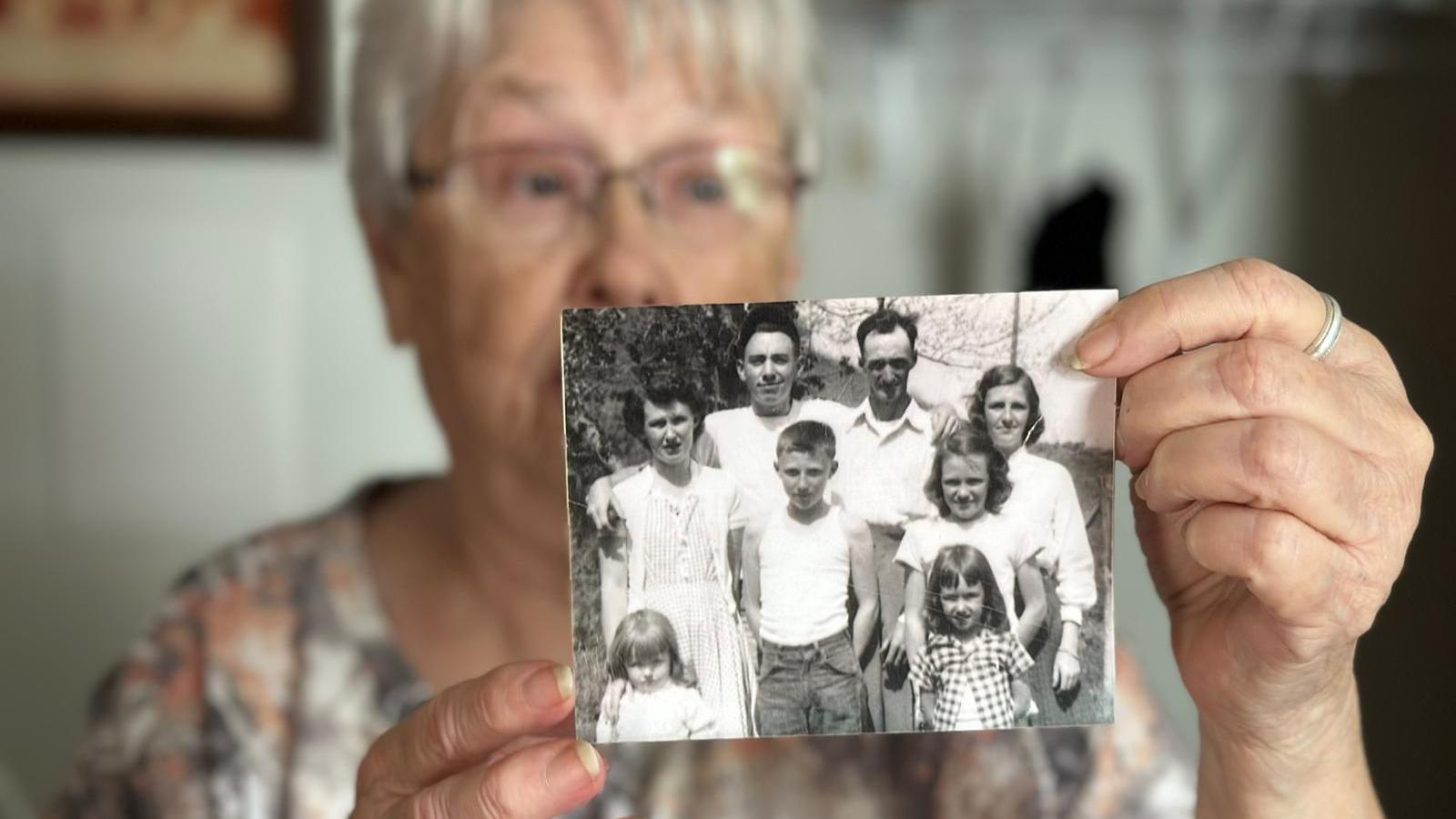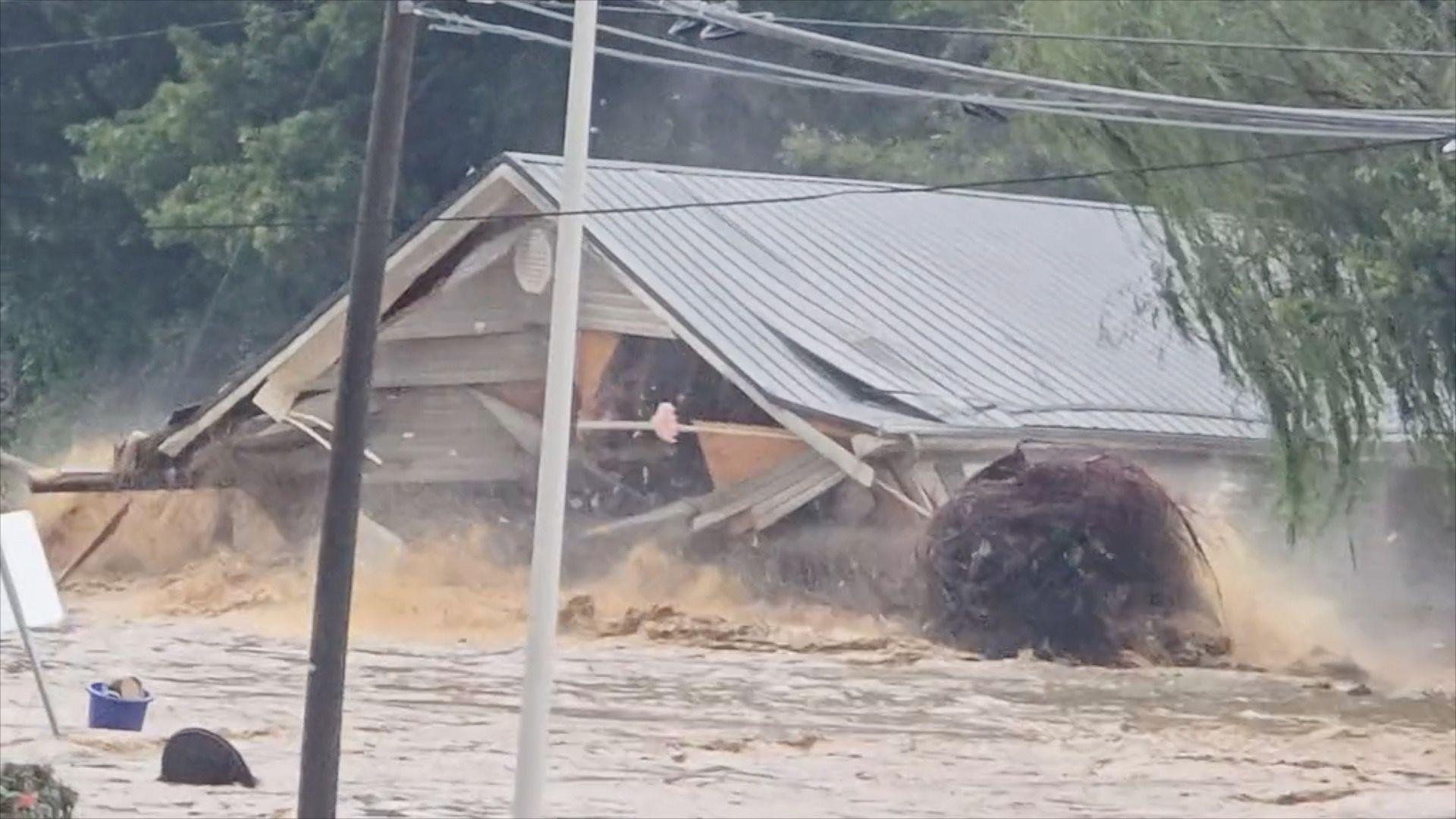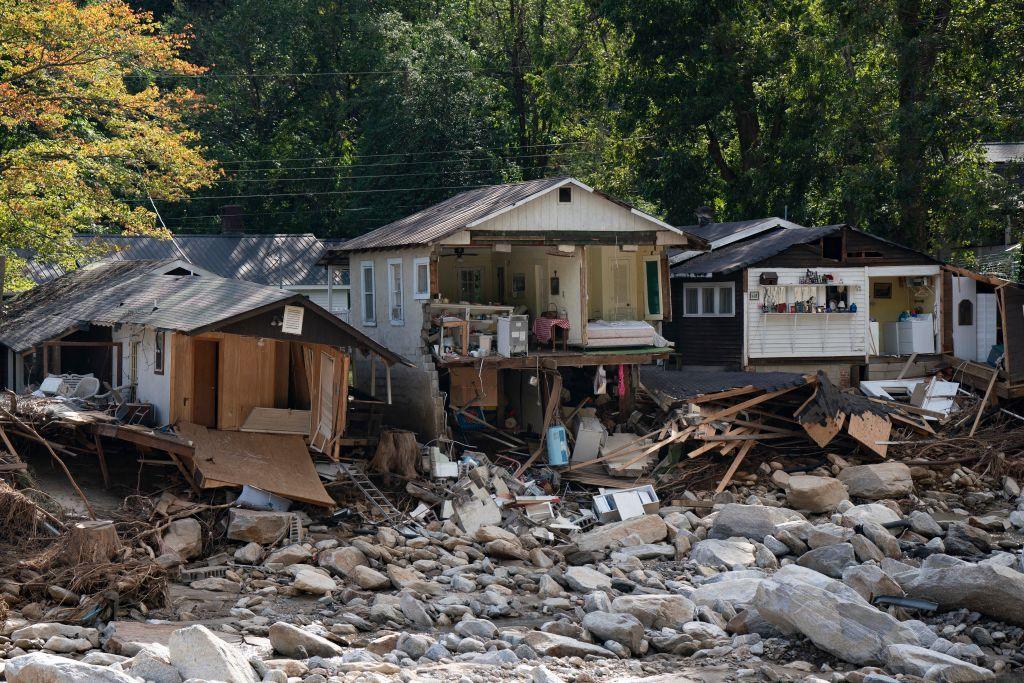IV fluid supplies in US disrupted by Hurricane Helene
Hurricane Helene: North Carolina house sweeps down river and smashes into debris
- Published
Hospitals across the US could see their intravenous (IV) fluid supplies dwindle after a plant involved in producing IV solutions for one of the country’s largest manufacturers was flooded as a result of Hurricane Helene.
The health care and medical tech company, Baxter International, based in North Carolina, produces 1.5 million bags of IV solution a day, according to the American Hospital Association.
The company was forced to stop production after Helene caused flooding on its site.
The death toll from Hurricane Helene - which was later downgraded to a tropical storm - has now reached 217 across six states in the US's south-east.
In a statement released on Friday, Baxter International said: “We continue to work around-the-clock to assess the full extent of the impact and minimize potential supply disruptions to help ensure patients and providers have the products they need."
In Boston, Massachusetts, one hospital has already been dealing with the affects of the supply disruption, after being notified that it would receive only 40% of its usual supply from Baxter International.
Mass General Brigham hospital has responded by preserving its supply and giving some patients Gatorade or plain water instead of IVs, NBC news reported.
The hospital said it hoped to avoid disruption to patient care and was making contingency plans.
IV fluids are used to deliver medications, fluids or nutrients directly into a person's vein.
The IV fluid disruption comes as more than 800,000 people are still without power. The majority of these people are in North Carolina, South Carolina and Georgia, but some in Florida and Virginia are also affected.
Among the other residual affects of the storm are potential hindrances to early voting.
A judge in South Carolina ruled on Friday that voters will have an additional ten days to register to vote in the election after flooding and power outages from the storm decimated parts of the state.
The National Task Force on Election Crises also discussed the affects of the storm on accessibility to polling stations for the upcoming presidential election.
Several voting sites in North Carolina no longer exist because of the storm, Anne Tindall, special counsel at Protect Democracy, said during the briefing.
She noted several others are severely damaged and new sites and combining sites will need to happen to ensure voting continues.
Experts agreed that, regardless what happens with the voting sites, the storm will have an impact on turnout.
Robert Orr, a former North Carolina Supreme Court Justice, predicted there will be a diminished vote "to some degree or another" in the counties affected by the storm.
North Carolina is one of seven swing states in the US that are considered crucial for either presidential nominee to win to achieve victory in November.
Both presidential candidates as well as President Joe Biden have toured damaged areas in recent days.
The White House said on Friday that the Federal Emergency Management Agency (Fema) has provided $45m (£34m) in funding for those affected by the hurricane so far.
In a statement, it added that the National Guard has sent more than 6,700 Army and Air National Guard members from 16 states to assist with the on-the-ground response.
The president has also deployed 1,000 active-duty soldiers to help with the aid efforts.
Earlier in the week, Homeland Security Secretary Alejandro Mayorkas warned that if another storm struck the US in the coming months, Fema would struggle to provide assistance.
"We are expecting another hurricane hitting.... Fema does not have the funds to make it through the season," Mr Mayorkas told reporters earlier in the week.
The US government has shipped more than 8.8 million meals, more than 7.4 million litres of water, 150 generators and more than 225,000 tarps to the region, Mr Mayorkas said.
Related topics
- Published3 October 2024

- Published3 October 2024

- Published4 October 2024
